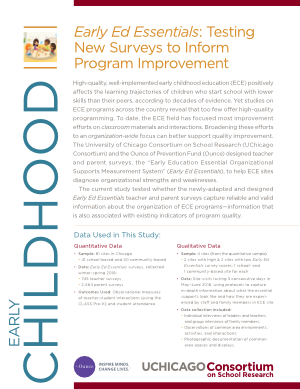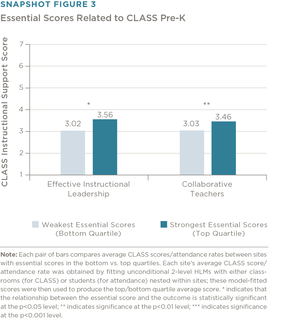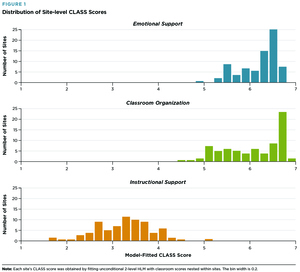1. Are the Early Education Essentials teacher and parent surveys psychometrically sound?
2. Are responses to the Early Education Essentials surveys positively related to desirable outcomes in early education programs?
3. Are there qualitatively different climate, structures, and practices between ECE sites with high vs. low Early Education Essentials survey scores?
High-quality, well-implemented early childhood education (ECE) positively affects the learning trajectories of children who start school with lower skills than their peers, according to decades of evidence. Yet studies on ECE programs across the country reveal that too few offer high-quality programming. To date, the ECE field has focused most improvement efforts on classroom materials and interactions. Broadening these efforts to an organization-wide focus could better support quality improvement. The UChicago Consortium and Start Early designed teacher and parent surveys, the “Early Education Essential Organizational Supports Measurement System” (Early Education Essentials), to help ECE sites diagnose organizational strengths and weaknesses. The current study tested whether the newly-adapted and designed Early Ed Essentials teacher and parent surveys captured reliable and valid information about the organization of ECE programs—information that is also associated with existing indicators of program quality.
Key Findings
- Early Education Essentials measures were internally reliable and the teacher survey measures differentiate well across ECE sites.
- In order to capture parents’ perspectives, a sixth essential called Parent Voice was created and was tested as part of the validation study.
- Most, but not all, essential scores were significantly related to site-level outcomes. Ambitious Instruction and Parent Voice were not significantly related to either outcome measured. Sites with high and low Early Education Essentials survey responses had qualitatively different climate, structures, and practices.
- The qualitative voice of families contributed substantially to researchers’ ability to describe and differentiate the climate and conditions of ECE sites with strong and weak essential supports.
- The survey development team will continue to refine the tool, including revising the parent survey.










